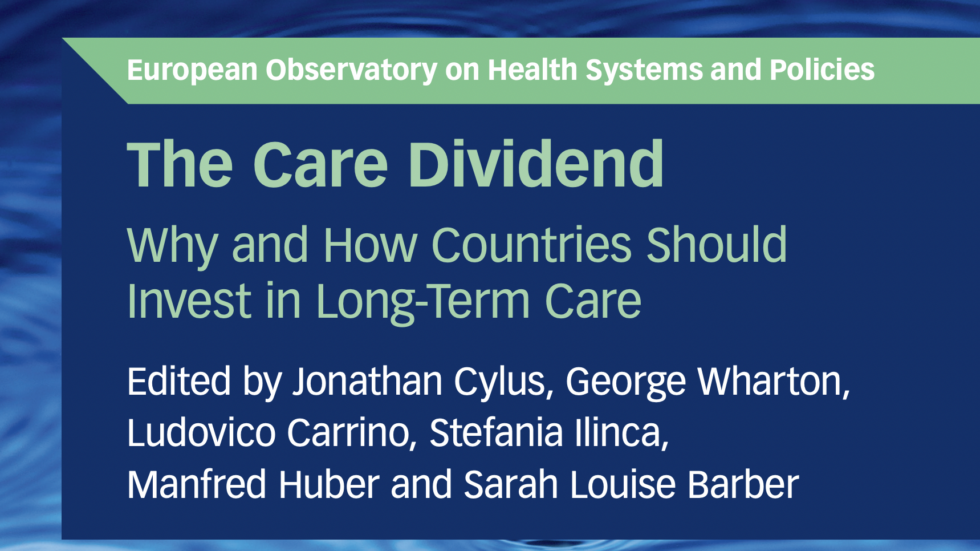Health insurance (HI) has become a central policy tool in the Middle East and North Africa (MENA) region as countries work toward universal health coverage (UHC). Despite the dominance of government funding and out-of-pocket (OOP) spending in financing health care, a...

Global health experts call for accountability in private sector influence
Experts at a UNU-IIGH symposium urged stronger regulation of private sector influence to protect public health and ensure equity in global health governance. The United Nations University International Institute for Global Health (UNU-IIGH) and Third World Network...

HGPI highlights the role of data in advancing UHC and health financing
The HGPI report highlights the critical role of data in advancing Universal Health Coverage (UHC) and health financing, emphasising the use of international databases for effective policy development and global comparison. The Health and Global Policy Institute (HGPI)...

Health taxes could raise $2.1 trillion for low- and middle-income countries, IMF article argues
Higher taxes on tobacco, alcohol, and sugary drinks could raise $2.1 trillion for low- and middle-income countries while improving public health and reducing reliance on foreign aid, says the IMF.A new Finance & Development article by Masood Ahmed and Minouche...

Countries face sharp health financing cliffs amid dwindling aid, warns The Lancet article
Global health aid is declining, with over 3 billion people in debt-burdened countries. Nations like Nigeria and Thailand are adapting, but coordinated, sustainable solutions are urgently needed. The global health community is facing a critical juncture, as highlighted...

Official development assistance for health: an expected 40% reduction
Decisions by Organisation for Economic Co-operation and Development (OECD) Development Assistance Committee (DAC) members to freeze or cut aid disrupt health services in low- and middle-income countries, risking a 40% drop in health aid by 2025 and worsening workforce...
Analysing global immunisation expenditure
The Office of Health Economics (OHE) published the research paper "Analysing Global Immunisation Expenditure" on April 15, 2025. This comprehensive study examines immunisation spending trends from 2016 to 2022 across ten countries: Australia, Brazil, Canada, France,...
Taking stock of development assistance for health (DAH) in the 21st Century: Renewing our commitment
Over the past three decades, the world has made significant progress in improving population health, particularly in low- and lower-middle-income countries. Reductions in infant mortality and the disease burden among young children reflect both socioeconomic...
Purchasing health care from the private sector: a primer for middle-income countries in the WHO European Region
In response to growing interest among middle-income countries in the WHO European Region to engage private health-care providers (PHPs) within publicly funded health systems, the WHO Barcelona Office for Health Systems Financing has developed this primer to support...
Financing intersectoral action for health: a systematic review of co-financing models
The research article by Finn McGuire, Lavanya Vijayasingham, Anna Vassall, Roy Small, Douglas Webb, Teresa Guthrie, and Michelle Remme published in the Journal of Globalization and Health explores how shared financing mechanisms can support collaborative efforts...
Protecting global health partnerships in the era of destructive nationalism
In an opinion piece published by PLOS Global Public Health, Adam et al. (2025) examine the growing threat that rising nationalism poses to global health partnerships. The authors—Maya Adam, Desiree LaBeaud, Nokwanele Mbewu, and colleagues—highlight how shifts in the...
The global landscape of country-level health technology assessment processes
The global landscape of Health Technology Assessment (HTA) processes is evolving as countries strive to implement evidence-based decision-making for healthcare services. This survey, covering 104 countries, offers an insightful analysis of the current state of HTA...

European Observatory on Health Systems and Policies report on investing in long-term care
'The Care Dividend' urges public investment in long-term care, showing its benefits for health, economies, and households as populations age. Published by the Observatory and Cambridge University Press. A book published by the European Observatory on Health Systems...

Turning nutrition pledges into action: World Bank course promotes nutrition-responsive budgeting
The World Bank promotes nutrition-responsive budgeting to turn commitments into action, recognising nutrition as a key social determinant of health. A free course offers tools to support this approach. Adequate nutrition is more than just access to food—it is a...
The care dividend: Why and how countries should invest in long-term care
Published by the World Health Organization’s European Observatory on Health Systems and Policies and released by Cambridge University Press, The Care Dividend: Why and How Countries Should Invest in Long-Term Care presents a timely and evidence-based argument for...
